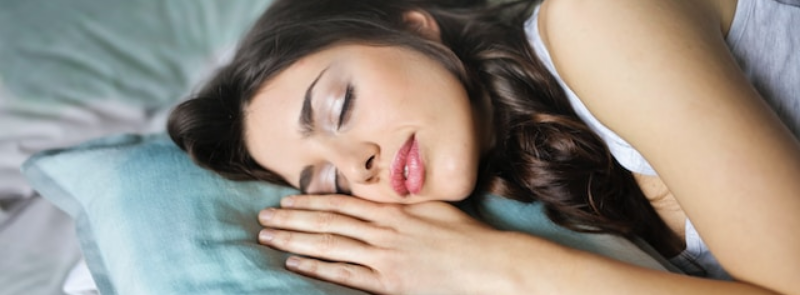
When It Occurs
Every January 3rd
Timeline
Days Passed (1147)
# Hashtags
#FestivalOfSleepDay #TakeANap
Observed annually on January 3rd, Festival of Sleep Day encourages individuals to unwind and take a break after the bustling holiday and New Year season. For some, this day serves as an opportunity to appreciate the importance of sleep and assess habits to ensure a good night's rest. Others suggest embracing comfort by choosing relaxing outfits such as slippers, pajamas, nighties, tracksuit bottoms, or dressing gowns.
Purpose and Meaning
The Festival of Sleep Day was created as a way to emphasize the importance of sleep, which is often overlooked due to the fast pace of modern life. The idea behind the observance is to focus on the mental and physical benefits of rest, relaxation, and recovery. It serves as a reminder of how crucial sleep is for well-being and is often viewed as a day to reset and recharge for the year ahead.
For many people, the holiday season involves late nights, social gatherings, and disrupted sleep schedules, leaving them feeling fatigued as they enter the new year. Festival of Sleep Day is an opportunity to prioritize self-care by taking a break and indulging in some extra sleep.
Importance of Sleep
The day promotes awareness of the benefits of a good night's sleep, such as:
-
Cognitive Function and Memory: Sleep is essential for brain health, aiding in memory consolidation, problem-solving, and creativity. A well-rested mind is more productive, focused, and alert.
-
Physical Health: Sufficient sleep supports the immune system, helps in muscle repair, and regulates hormones like cortisol (stress hormone) and insulin. It also lowers the risk of developing chronic health conditions such as heart disease, diabetes, and obesity.
-
Mental Health: Sleep is closely linked to mental health. Chronic sleep deprivation can lead to mood swings, anxiety, depression, and stress. Conversely, adequate rest promotes emotional stability and resilience.
-
Energy Levels and Productivity: Proper sleep boosts energy levels, allowing individuals to be more productive and efficient during the day. People who regularly get enough sleep tend to have higher motivation and better decision-making skills.
How to Celebrate
Although it’s not an official holiday, people are encouraged to observe Festival of Sleep Day by:
-
Napping: One of the simplest ways to celebrate the day is by taking a nap. Napping, even for 20-30 minutes, can help restore energy levels and improve alertness.
-
Sleeping In: For those with the flexibility to do so, sleeping in on January 3rd can be a luxurious way to celebrate. It’s an opportunity to catch up on sleep and let the body and mind fully rest.
-
Creating a Sleep-Friendly Environment: The day can be an excuse to optimize your sleep environment. This could involve investing in better bedding, darkening the room, removing electronics, or using white noise machines to promote deeper sleep.
-
Unwinding and Relaxing: Festival of Sleep Day is also about relaxation. Many people choose to unwind by reading, meditating, or taking a warm bath—activities that prepare the body for restful sleep.
-
Taking a Digital Detox: Reducing screen time is another great way to celebrate the day. Disconnecting from technology, particularly in the evening, helps in creating a more calming pre-sleep routine.
Raising Awareness About Sleep Disorders
The observance of Festival of Sleep Day also highlights the importance of addressing sleep disorders, such as:
- Insomnia: Difficulty falling or staying asleep, which can lead to chronic sleep deprivation.
- Sleep Apnea: A serious condition where breathing repeatedly stops and starts during sleep, often leading to poor sleep quality.
- Narcolepsy: A neurological disorder that affects the control of sleep and wakefulness, often causing sudden daytime sleepiness.
- Restless Legs Syndrome (RLS): An uncomfortable urge to move the legs during sleep, which can disrupt sleep.
By raising awareness, this day encourages individuals who struggle with sleep to seek professional help or adopt better sleep habits to improve their overall health.
Fun Facts About Sleep
In honor of Festival of Sleep Day, here are some interesting facts about sleep:
- Humans Spend One-Third of Their Lives Sleeping: On average, humans spend about 25 to 30 years of their life asleep.
- Dreams: The average person has between 3 to 5 dreams per night, although many dreams are not remembered.
- The World Record for the Longest Sleep: The longest period a human has stayed awake is 11 days (without sleep), set by Randy Gardner in 1964, although it's highly discouraged to attempt this.
- Sleep Cycles: Sleep consists of several stages, including REM (rapid eye movement) sleep, which is when most dreaming occurs, and non-REM sleep, which is crucial for deep restorative sleep.
Conclusion
The Festival of Sleep Day in the United Kingdom offers a fun and relaxing way to acknowledge the critical role of sleep in maintaining good health and well-being. It’s a chance to take a break, unwind, and enjoy the restorative benefits of a full day dedicated to sleeping or resting. Whether by indulging in a nap, catching up on missed sleep, or learning more about improving sleep hygiene, this day reminds everyone to prioritize rest in their busy lives.


